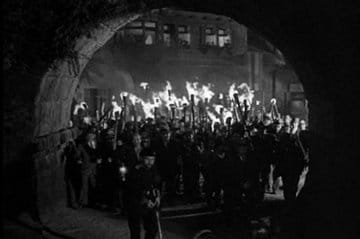The next two years: war between the parties, and war within the parties


Major schisms are forming within both major parties, and last night's election makes this all the more obvious. There will now be open warfare within both parties, as the factions vie for dominance.
On the Republican side, Tea Party candidates did well enough that they can no longer be ignored, denigrated, or cynically exploited by party insiders, much as they might want to. Instead, GOP leaders now want to stop Palin, and by association, the rest of the Tea Party. It's not just that Palin is unelectable as a presidential candidate; it's more that her insurgency, along with the Tea Party, is a direct threat to the power base, funding, and influence of the Republican elite. A rambunctious Tea Party simply cannot exist within the current confines of the Republican Party. Something will have to give. What Palin is attempting is precisely what netroots wants to do too: storm the citadels of their party then seize control. But, the Empire will strike back, make no mistake about that. (So far, Palin has been more successful in her attempts than netroots, why is this?)
Progressives and the left are in revolt against Obama. This is certainly a major reason the Democrats did badly in the midterms. "The base was demoralized, not because the Dems went too far left, but because they went too far right." says Ian Welch. The Democratic Party abandoned, ignored, and back-stabbed its left flank only to find they needed those votes. Oopsie. So what did they do to win them back? Why, they insulted progressives and mocked them for their supposed stupidity. Bizarrely, this tactic appeared to have alienated those it wished to attract. Who could have predicted such a thing could happen? Certainly not the Democrats. On the other side of this are those who want the party to be ever-more centrist and accommodating. As with the Republicans, these two factions can no longer co-exist, even semi-peacefully.
The battles within the parties will likely lead to splits and to the formation of third and independent party runs in 2012. This will happen on all sides of the political spectrum, and maybe in the center too, if Bloomberg runs for president. We are living in highly unstable political times. The implosion of the economy and the resultant unemployment and anger will not be going away soon. That's what's fueling the schisms in both parties, along with the belief that elites in both parties are remote, isolated, and don't have much of a clue about what to do, and that they're old and in the way.
Of course, with the Democrats getting clocked in the House races, it's a whole new gridlocked-filled day in Congress. There will be much sound and fury, signifying nothing, as the parties go at each other. Well, the Republicans will certainly go at the Democrats. Whether the Democrats will ever learn to return a punch remains to be seen. But they still control the Senate and Obama has veto power, so in all likelihood, not much will be accomplished in the next two years. But it needs to be. The economy is ailing, the infrastructure crumbling, and can you hear it in the distance, the sound of peasants with pitchforks?
So, what changed in this election? Sure, the Republicans picked up a big victory, but whether they will be able to get a legislative agenda through remains to be seen. Both parties will have to deal with internal revolts. Given such an unstable landscape, long-term predictions are pointless. We'll just have to wait and see what happens.


